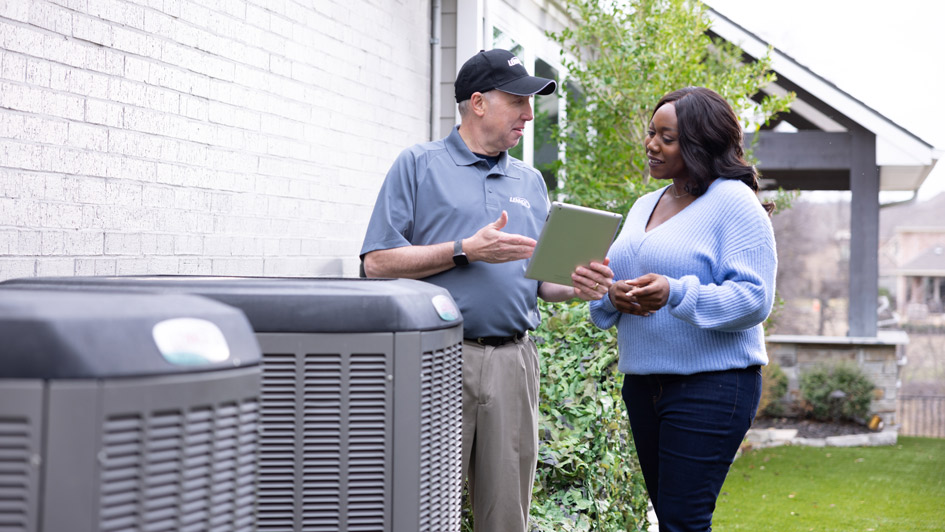
Ready for a new HVAC system? Or are you just done with your old, broken-down equipment? Regardless of what your reasons are for exploring replacement, an informed decision will ensure your preferred make and model keeps your home comfortable and efficient. As a relatively new option on the market, a high-efficiency heat pump may be the breakthrough you've been looking for.
Installing a heat pump is a flexible solution for climate control in your home. Rather than produce heat like a furnace or use ductwork like your air conditioning, heat pumps function differently. They instead transfer heat in or out of your home to maintain comfortable temperatures all year. What’s more, this heating or cooling comes directly from the outdoor cabinet to the indoor unit(s) rather than a system of ductwork.
With help from the installation team at Central Air LLC, it won’t be long before you see firsthand just how effectively a heat pump can function. Let’s review a few of the specifics about heat pump installation so you can make that informed decision.
Why Your Next HVAC System Should Be a Heat Pump
- Energy efficient performance all year: Heat pumps are celebrated for their strong energy efficiency, offering significant savings on utility bills compared to more conventional heating and cooling systems.
- Versatile dual-function: Unlike conventional HVAC systems, heat pumps provide both heating and cooling capabilities, making them a versatile option for all-season comfort.
- Improved indoor air quality: Most heat pumps operate without ductwork, reducing the risk of airborne particules that can gather in duct systems, leading to better indoor air quality.
- Smaller maintenance needs: With no ignition components and simplified operation, heat pumps generally need less maintenance than central air HVAC systems, saving your family several headaches in the long run.
- Powerful, yet noise-free comfort all year: Heat pumps run quietly and effectively, maintaining comfort indoors without annoying noise or temperature changes.
- Compatibility with renewable energy sources: Geothermal heat pumps draw on the renewable energy from the earth's natural heat, offering an eco-friendly alternative to more traditional methods and minimizing reliance on fossil fuels.
What to Know Before Installing Your Heat Pump
Before starting heat pump installation, there are several things you should remember:
Handling cold temperatures: While heat pump technology is constantly advancing, it's still possible that the heat transfer process works less efficiently in below freezing weather. Many heat pumps are designed to work in freezing temperatures, but especially sharp drops in the temperature may impact your heat pump’s performance.
Supplemental HVAC system: While some homeowners want to make their heat pump their only HVAC system, it isn’t the only choice. Heat pumps can supplement existing heating and cooling systems, providing extra comfort during milder parts of the year without the need for a full system replacement. You can save your furnace or air conditioner for when more intensive heating or cooling is required.
The benefits of a ductless design benefits: Many heat pumps are called ductless heat pumps, offering flexibility in installation and zoning options. Homeowners can customize their climate control with an appropriate number of indoor units for room-to-room comfort.
Get Your Free Heat Pump Installation Quote Today
Looking forward to the benefits of high-efficiency HVAC firsthand? Contact Central Air LLC at 203-357-5913 to ask about a free quote for heat pump installation in Brookfield. Our experienced installers will be more than happy to help you through the process and respond to any questions you may have about introducing heat pump technology into your home.
Don't miss out on the latest way to improve your comfort and efficiency with advanced HVAC solutions from Central Air LLC. Discover the difference that heat pumps make in your home by calling today!
